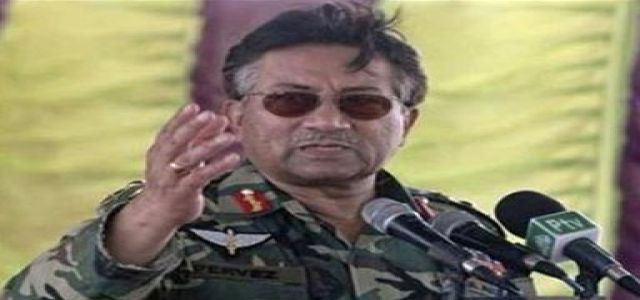|
|||||||||
| :: Opinions > Other Opinions | |||||||||

Pervez Musharraf leaves a fractured Pakistan
When Pervez Musharraf seized power in 1999, he was besieged by American demands that his military stop supporting the Taliban in Kabul and help them apprehend Osama bin Laden.
|
|||||||||
| Friday, August 22,2008 04:22 | |||||||||
|
|||||||||
|
When Pervez Musharraf seized power in 1999, he was besieged by American demands that his military stop supporting the Taliban in Yesterday, as Musharraf received his last military honour guard as he stood down from the presidency, the government he leaves behind is besieged by American and Nato threats: that the army either helps catch bin Laden, and does more to stop the Taliban"s double offensive in Afghanistan and Pakistan, or faces increased American bombing inside Pakistan. Over the nine years that Musharraf has been in power, little seems to have changed. When he overthrew the elected government of prime minister Nawaz Sharif, he promised to usher in "real democracy", yet Musharraf"s legacy is a tattered and divided civilian government that has been emasculated by the military, a polarised and heavily armed populace, a disastrous economic crisis, with inflation at 25 per cent, and the newly emerged "Pakistani Taliban" now knocking on Islamabad"s door. In his final speech to the nation, Musharraf tried to point to all the good he had done; but the majority of his countrymen think his years in power have worsened Three of The chances of that happening again are stronger than ever. Much of the fault lies with Musharraf"s aversion to democracy and his failure to make the most of the opportunities offered by the West after 9/11, when he received massive financial aid ($11.8?billion from Washington alone) and unstinting international support. He came to power on a wave of popularity after the politicians had failed yet again, but he failed to stabilise the system by rebuilding state institutions and planning for a genuine and permanent transition to sustainable democracy. In 2002, with ample American and British support, he rigged a referendum that made him president for five years and then held a rigged general election by keeping the major opposition figures in exile abroad and cobbling together a government of politicians loyal to the army. Last year, when millions took to the streets demanding the rule of law and democracy and, as western pressure increased to allow a transition to democracy, he dragged his feet. In November, he reimposed emergency rule in order to salvage his faltering popularity and credibility. The draconian measures he introduced - sacking the higher judiciary, censoring the press, throwing thousands into jail - infuriated the nation and galvanised opposition politicians. He was forced to rescind his measures and hold free and fair elections last February. His supporters were trounced and his opponents came to power. Since then, they have tried and failed to work with Musharraf, who continued to believe that political power should be concentrated in the presidency. In the meantime, Musharraf and the military had played a double game in the war on terror, chasing down al-Qaeda leaders hiding in For Musharraf, the Afghan Taliban were a hedge against a possible But a backlash was inevitable. The Pakistani Pashtun tribesmen who protected bin Laden and the Afghan Taliban when they retreated to These militias, now dubbed the Pakistani Taliban, have taken over the tribal agencies that border Joined by al-Qaeda, foreign militants from around the world and Arabs from the war in Musharraf"s departure is certainly a victory for democratic forces, but it will not necessarily pull the country together. The PPP, now run by Bhutto"s husband, Asif Zardari, governs with a complex coalition government which is in a constant state of internal conflict. The main protagonist is Nawaz Sharif, head of the Pakistan Muslim League, who spares no opportunity to try to pull down the PPP. Sharif believes his popularity and the parliamentary seats he controls in the majority
|
|||||||||
|
Posted in Other Opinions |
|||||||||
|
|||||||||
|
|
|||||||||
| Related Articles | |||||||||
|
|






